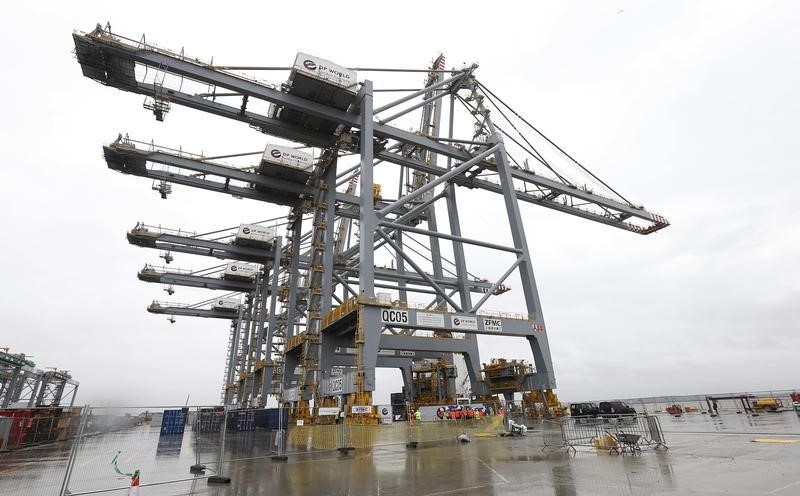British industrial output expectedly fell in January hit by a reduction in work in the information technology and machinery sectors after a strong December, official figures showed.
Industrial output fell by a monthly 0.1 percent, compared with a forecast for a 0.2 percent increase from economists taking part in a Reuters poll.
The Office for National Statistics said manufacturing output slid 0.5 percent in January from December.
The biggest drag came from the computer, electronic and optical sector in which output plunged by 9.5 percent, its biggest monthly fall since early 2002, the ONS said.
Output in the sector had been boosted in December by a big public sector defence contract, an ONS official said.
There was also a big monthly fall in output of equipment used for power generation, he said.
Over the three months to January, a less volatile measure of output, manufacturing was up 0.4 percent compared with the previous three months, picking up a bit of speed from December.
Britain's economy grew by 2.6 percent in 2014, the fastest growth rate of any big advanced economy, but lost pace towards the end of the year when total output rose by 0.5 percent.
Since then, however, there have been signs that the fall in world oil prices has given a fresh boost to growth, helping Prime Minister David Cameron as he urges voters to give him a second term in office on the strength of the country's recovering economy.
The ONS said British oil and gas production recovered in January, rising 2.4 percent on the month, helped by increased production at a North Sea oil terminal and oil and gas fields.
Output in the North Sea in December had been reduced by extended maintenance at oil fields.
The ONS' industrial output data cover nearly 15 percent of the total British economy.

In yearly terms, industrial production and manufacturing were up 1.3 and 1.9 percent respectively. Economists in the Reuters poll had predicted increases of 1.3 and 2.6 percent.